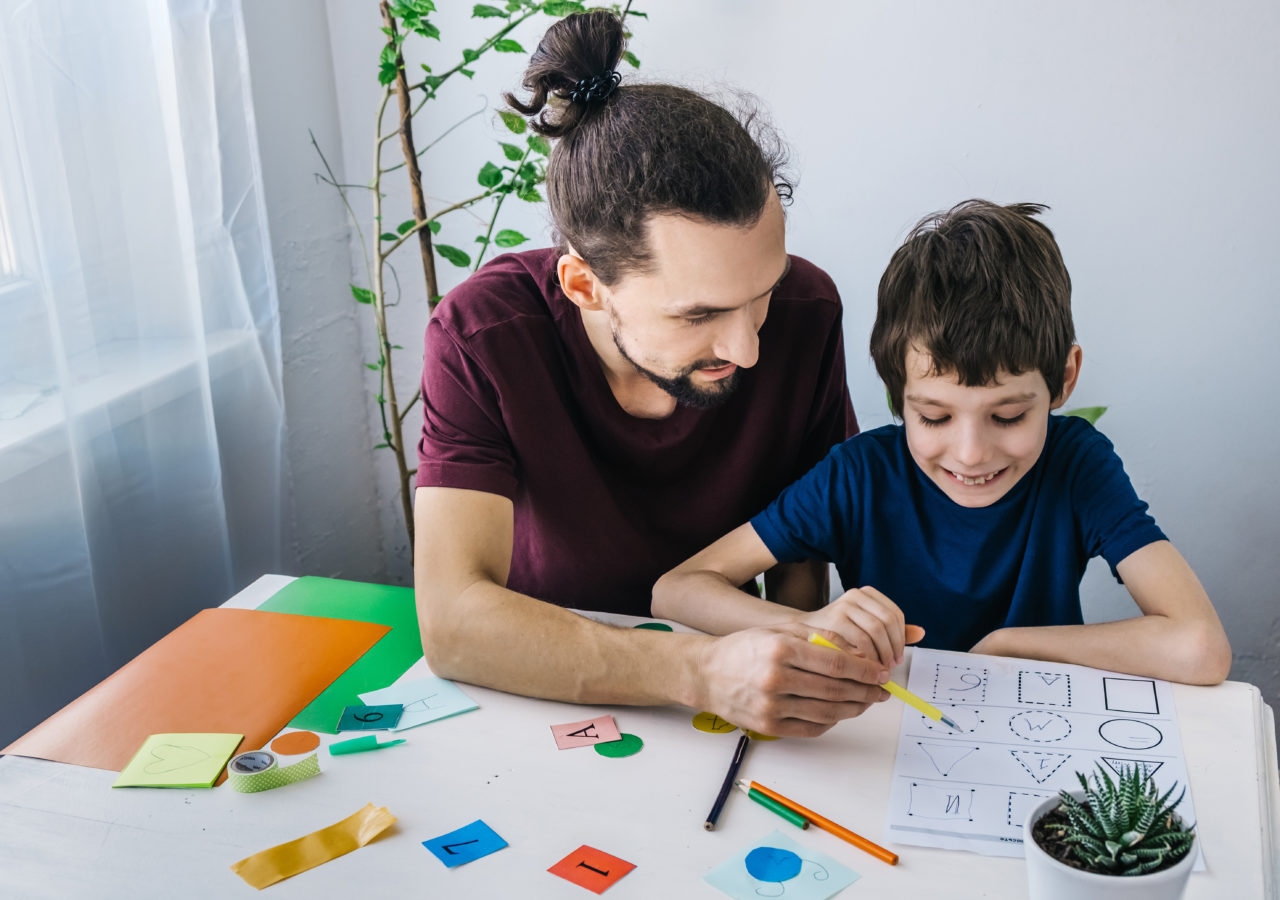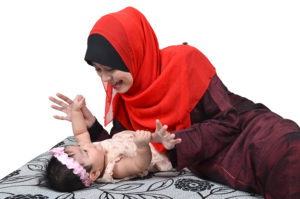I came to learn that Autism is not a tragedy, but our lack of understanding towards it is

I never gave Autism the consent to enter into our lives, but it did! Uninvited and unannounced. I don’t know if I have ever fully embraced it or welcomed it or if I have been 100% at peace with its presence.
But I did come to learn that Autism is not a tragedy, but our lack of understanding towards it is.
What is autism? The National Autistic society defines it as: “A lifelong developmental disability which affects how a person communicates and interacts with the world.”
This is our story with Autism, and how our relationship with it unfolded over the years.
My son was developing beautifully well up until the age of 18 months. He reached all his developmental milestones on time and showed no signs of social or communication delays. He was super smart and friendly, he probably had up to ten words at that time (which he used functionally too). He was the heart and soul of birthday parties and wanted to be the person who blew the birthday candles (even if it wasn’t his birthday) 100 times over! He blew you kisses if you left the house and sang the “Bob the builder” song when he saw construction sites or workers.
Then something happened, I’m not sure when or how but he started regressing slowly and gradually and my life started to fall apart!
There were a lot of subtle changes in him such as regression in his language and social skills. He was slowly transforming from a very cheerful easy going toddler to someone very withdrawn and sensitive to his surroundings. He wasn’t using his words anymore, he wasn’t playing with his older brother much and he wasn’t doing the typical things his peers would. I always told myself not to compare and brushed it off!
I put regression down to poor parenting from my end, I blamed myself for not reading him bed time stories and not playing with him enough!
I accused my eldest son of putting his brother off playing with their toys. I also thought as we were living in a city away from all our family and friends that this child was missing out on social opportunities and we were now paying the price!
One afternoon at nursery pick up I was told I needed to have him assessed. I honestly had no idea what for, but the teacher listed the following:
1- He is not talking
2- He is not playing with others
3- He is not making eye contact
I thought that was absurd!!! Why would that require attention of a professional, he is not even three yet! She gestured to me to look at him, he was sat away from all the children giggling to himself, almost like he was in his own world. She then gestured to the direction of his class peers and they were talking and playing with one another. Apparently he would laugh loudly during morning assembly which the teacher found very inappropriate.
I went home and straight to Google to collect evidence to prove to his school that what the teacher was saying was ridiculous! But as I googled “poor eye contact” I came across the “A” word! I didn’t think it applied to my son but I went on to read up more on what it meant (just out of mere curiosity). I found a list of symptoms that described some of the bizarre things that I had noticed about my son such as:
1-Spinning
2-Loss of speech
3-Loss of social skills
4-Walking on tip toe
5-Not responding to their name
6-Hand flapping!
It was only when I searched up hand flapping on Youtube that I realised that there were many other kids out there who were behaving like him. It was like he belonged to a secret cult or tribe that I knew nothing of!
Fast forward six months later he was officially diagnosed and the consultant said it was a “classic case of Autism”, and that he also had severe learning difficulties. My husband and I desperately tried to make sure he was getting all the therapies he needed to improve his chances of “recovering”. We were always reading about the absolute importance of early intervention and did not want to waste any time! So we had endless hours of speech therapy, occupational therapy and intensive interaction. Progress was steady but extremely slow. And where he gained some skills, he lost them easily soon after.
When it was time to apply for a place at reception class, we all collectively agreed that he would benefit from being held back another year at nursery whilst his Education and Healthcare Plan is finalised.
I spent that year trying to make sense of what happened and what is it that we needed to do next. I came to realise or accept that our son wasn’t going to be like other neurotypical children his age and all we can do is make sure he is happy and thriving in whichever setting he was at. I believed that mainstream schools were far too demanding of neurotypical children let alone those with special education needs (SEN), so I advocated for him to attend a specialist provision where he can receive support specifically tailored to his own needs. It’s a decision we are glad we made, as he continued to thrive in that setting.
I always say that the most difficult part of our journey was definitely the beginning of it all, trying to get the diagnosis then making sense of how this condition will impact our child and our family. The first few years were just a blur! I was sleep deprived due to his irregular sleep patterns and trying to navigate through the health and education systems, keeping up with the endless appointments & assessments, it was just relentless.
Up until Covid hit I was attending every training workshop offered to parents of Autistic children. From toilet training workshops to food tolerance groups and intensive interaction therapy training, ADHD parenting sessions, Makaton signing to ABA classes. In addition to this, The child and adolescent mental health service (CAMHS) were able to provide us with tailored advice into managing “challenging” behaviour and helping me as his primary carer process his diagnosis, which I found invaluable.
Imam Ali (a.s.) has said “people are enemies to what they are ignorant of”. And indeed, the more I understood this condition the more I felt at ease with it.
There were many times where I felt like I wasn’t coping or that I just could not do this parenting job anymore! I don’t share this for pity, I share it because I want to highlight the need to support parents on a journey that can often be extremely lonely and depleting.
In reality though I wasn’t alone, I found solace in talking to parents who shared similar challenges, and I had family and friends who went out of their way to support us. It was these individuals who really turned things around for us, held our hands and walked with us as we came to love and accept our new reality.
Initially, I felt a sense of pressure to prove to myself that I had exhausted all means of early intervention efforts possible. That I had tried everything within my capabilities to “fix” my child or push autism out of our lives. I also felt that I had to pray harder to make it go away.
In the process of trying to “cure’ my child, I realised it was my thought processes that needed to be treated. That all of Allah’s creations are beautiful, and His (swt) plans are perfect and His love is greater than words can describe! That His mercy was unlimited and that we were only human and needed to have trust in His divine wisdom.
My son is now a mostly happy, loving ten year old child. Whilst he is still non-verbal with limited receptive language skills, he has actually come a long way and we are tremendously proud of the progress he has made in all areas of his development.
He is more than a diagnosis. That says so little about him. He has a heart that only spreads joy and never harbours a grudge.
His carefree personality and ability to live the moment to its fullest is something to be envious of. I often wonder about how hard it must be for him not to be able to express himself verbally, or how excruciatingly hard it must be to have sensory challenges that are so often overlooked. But somehow he soldiers on with a huge smile that brightens up our world and beautiful eyes that say so much more than any words can.
So how does it impact our family life and that of his siblings?
As his sister put it so beautifully at the age of seven “He is the light of our day and the moon of the family and we are the stars gathered around him.”
It sounds very poetic and romantic and yes we absolutely adore him. This also means he runs the show and calls the shots a lot of the times in our home. Not because he is spoilt but because there are things he just can’t do or can’t cope with due to his sensory processing challenges.
This means a family outing needs to be carefully planned, where we go, when we go, where we eat and even how long we can stay. His tolerance levels towards certain foods, textures, noise and sensory stimulation are far more limited than for others.
My son loves his family and enjoys his time with his peers and staff at school. Just like any other ten-year-old, he loves theme parks, trampolining and lots of ice cream! For now, I try my best not to think about the future, we will cross any bridges once we get to them. However, most likely he will continue to require daily support from those around him.
In 2019, a group of like-minded individuals came together to bring about change to our communities. It was a shared vision of ours to belong to “a fully inclusive community that provides equal opportunities and access for all, regardless of abilities”! We set out our goals and objectives and named our organisation “Amanati”. Each of the co-founders has a story to tell and this was mine.
I found a great deal of acceptance and support from the wider community. But outside of my close family & social circle, I found little if anything from our Muslim community! Disabilities were not openly spoken about, no acknowledgement of their needs were made and hardly any efforts were made to accommodate for them.
This did not sit well with me, I knew we all believed in the most Merciful the most kind Lord! So how were the most vulnerable members of the community excluded from our events and gatherings?! Where was our mercy and kindness in all of this?! Many of our centres were not wheelchair accessible, disabled toilets either didn’t exist or had been used as a storage space! I personally had never seen a lecture with a sign language interpreter! No priority parking available for those who genuinely needed it and parking allocations were done on a first come first served basis!
Amanati was set up to change all of that! We basically wanted to raise awareness around disabilities and special needs and to advocate for accessibility and inclusion in our communities.
We have managed to create three documentaries, record 20 podcast live shows, hold an autism hour event and our very own inclusivity conference, parent support workshops and more!
We also, have worked closely with several organisations such as The Legacy Exhibition, The Muslim Convention and currently Dar Al Islam to support them in becoming more accessible and inclusive!
It is our wish to empower individuals and their families to advocate for themselves, because they matter! We have also had very encouraging support from community leaders who recognise the need to seek out those individuals and bring them to the forefront of our communities.
With understanding and commitment, our Muslim community can support children, parents and families living with a physical or cognitive disability. I believe in three core areas to achieve this:
Firstly, awareness and education is absolutely crucial. We need to have these conversations to begin with as brushing them under the carpet only pushes the disabled members further away!
Secondly, each of our centres should ideally have a committee or an individual who deals with matters of inclusion and accessibility throughout the year. They can invite members and their families to talk about what their needs and challenges are and explore different methods of meeting them!
Thirdly, include disabled members in leadership committees, volunteer groups and even invite them to speak at events. Simple steps like these can go a long way!
The advice I would give to parents coming to terms with a new diagnosis or suspecting their child might have a disability is you’re allowed to have your moments to grieve but don’t let that consume you! Be proactive in your approach! Go out there and seek all the advice and support you can get, because reality is you will need it!
No one can advocate for your child better than you. Take care of yourself and your needs so you can take care of others, accept help and enjoy the ride! Nobody told me that parenting a child with additional needs brought so much joy to my life! It can really shift your perspective and help you see the world through a brighter, happier lens!
Find out more about Amanati at www.amanati.org or on Instagram @amanati_uk


